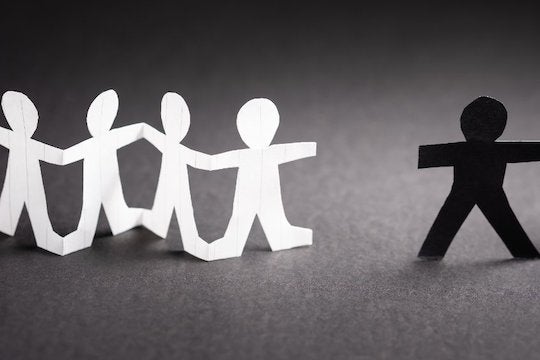HOUSTON – (July 7, 2022) – A new study has found a rise in racial apathy — in other words, not caring about racial inequality — among young white adults.
Racial apathy and the belief that Black people no longer experience prejudice in today’s world represent the “new racism,” according to Tony Brown, professor of sociology at Rice University and lead author of the study, “Changes in Racial Apathy Among White Young Adults: A Five-Year National Panel Study,” published in the journal Sociological Inquiry. He and his co-authors argue that racial apathy is just as harmful as outwardly hostile hate because it tends to “absolve whites of responsibility for racism.”
“In the time of Jim Crow, there was blatant hatred and blatant acts of discrimination,” he said. “Now today, racial apathy says basically, ‘I don’t care about racism, it’s not my issue.’ It is subtler and more socially acceptable.”

The paper used National Study of Youth and Religion survey panel data from young white adults over a five-year period to assess changes in racial apathy by analyzing variables such as social background, social values, academic orientation and interracial contact that should predict changes in apathy. For example, according to intergroup contact theory, interracial contact should contribute to decreases in racial apathy among whites, Brown said.
“The big take-home point is few of those variables, including interracial contact, predicted changes in racial apathy,” he said.
For example, the authors found it’s more likely racial apathy influences someone’s political ideology, as opposed to the reverse. And in prior studies, higher levels of parental education predicted less racial apathy, but that’s likely due to highly educated whites feeling pressure to report that they care about racial inequality even when they do not, according to this study.
The authors concluded from the analyses that interracial friendships can both challenge and support racial apathy. They also theorized that social media has created superficial or performative interracial relationships that make young white people feel like they’ve done enough to abate racism.
“In an increasingly connected world due to social networks and media, we speculate interracial friendships mean less and consequently act in a multivalent manner,” the authors wrote. “In addition, analyses show interracial dating predicted increases compared to decreases in racial apathy across time. We speculate whites dating outside their race may believe their relationship proves racism is a thing of the past. Consequently, they care less about racial inequality.”
This is why, the authors argue, future research needs to delve into types of contact, examining the length and quality of interactions between people of difference races and how this affects white racial apathy.
They also argue the current movement to ban books or legislate how schools can talk about racism could produce young white adults who don’t fully understand or care about racial inequality.
“Sadly, the end result will be increases in racial apathy at a time when we need to coalesce to defeat racism,” Brown said.

